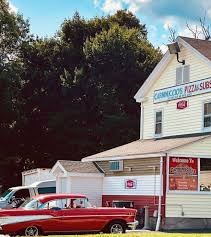More than 150 workers showed up at a Westchester County Board of Legislators meeting March 11 to express support for a bill that would require companies purchasing large commercial or residential buildings to retain the building”™s maintenance and security workers for 60 days.
Legislators held the public hearing for the Displaced Building Service Workers Protection Act with a line of workers on Martine Avenue in White Plains snaking around the block.
The bill applies to residential buildings with more than 75 units and commercial buildings of more than 75,000 square feet and to workers who make less than $25 an hour. They include janitors, groundskeepers, cleaners, superintendents and window cleaners.
New building owners would be required to retain all workers for 60 days at a salary of the owner”™s discretion, though workers could still be fired for cause or overstaffing during that period. After 60 days, the owners would be free to keep or lay off the workers.
“This legislation will help improve standards for workers and ensure stability and continuity of services for our clients who are commercial property owners,” said Jeremy Bressler, vice president of operations for the Connecticut/Westchester region for Guardian Service Industries Inc. “This has helped responsible contractors like us remain competitive. This legislation has not caused disruption to the industry.”
Edwin McCormack, communications director for County Executive Robert P. Astorino, said the county executive has a number of concerns about the bill. If Astorino were to veto it, it is unlikely a veto override would have enough votes among the lawmakers.
“We are always concerned with bills that have unintended consequences. This could distort the labor market in a way that will hurt employment,” McCormack said.
Workers at the meeting spoke about being displaced from jobs when building ownership changed hands.
Argenis Lorenzo, an Ossining resident, worked as a cleaner at a research facility in Ossining for five years, only to be fired when a new contractor took over.
“We were given only a few days notice,” Lorenzo said. “This caused lots of stress and financial hardship for my family. Without steady employment it was almost impossible for us to get by. It took me one year to find another steady job. I should have had the opportunity to show the new contractor that I could get the job done.”
Matthew Dunckel, a member of Community Voices Heard, a Yonkers-based organization that assists low-income women, worked at Unilever, a consumer goods company, but was replaced without warning when the company”™s building changed ownership.
“The Displaced Workers Protection bill is about ensuring economic fairness for some of the region”™s lowest paid employees,” Dunckel said. “The legislature should support the proposal and show the public that Westchester cares about workers making a living and will work to ensure those workers are treated with dignity.”
Albert Annunziata, executive director of the Building and Realty Institute of Westchester and the Mid-Hudson Region, a construction, development and real estate industry trade association, said he worried the bill could impact existing labor agreements and noted that civil servants like firefighters and police officers are not afforded the same protection.
“Why doesn”™t this apply to all employees?” Annunziata said. “Why does it apply to this segment of the labor market? It really raises a lot of questions.”
Annunziata also questioned how the county could enforce the legislation. He said a bill like this would give unions tremendous opportunity to unionize employees during the 60-day period.
“The legislature needs to be very careful,” Annunziata said. “There are so many unanswered questions and potential implications for employers. This bill arbitrarily favors labor over management without being mindful of the repercussions. This hasn”™t been properly thought out.”
After the hearing, the bill went back to the government operations committee, where it will continue to be revised. Democratic Majority Leader Peter Harckham, a co-sponsor of the bill, said he plans to meet with Republican Minority Leader James Maisano and Legislator Bill Ryan, the chair of the committee, to attempt to compromise and reach consensus.
“We can provide stability in the labor market as opposed to losing jobs every time a building flips and being forced to go on public assistance,” Harckham said. “We hope to replicate the success this bill had in New York City.”














